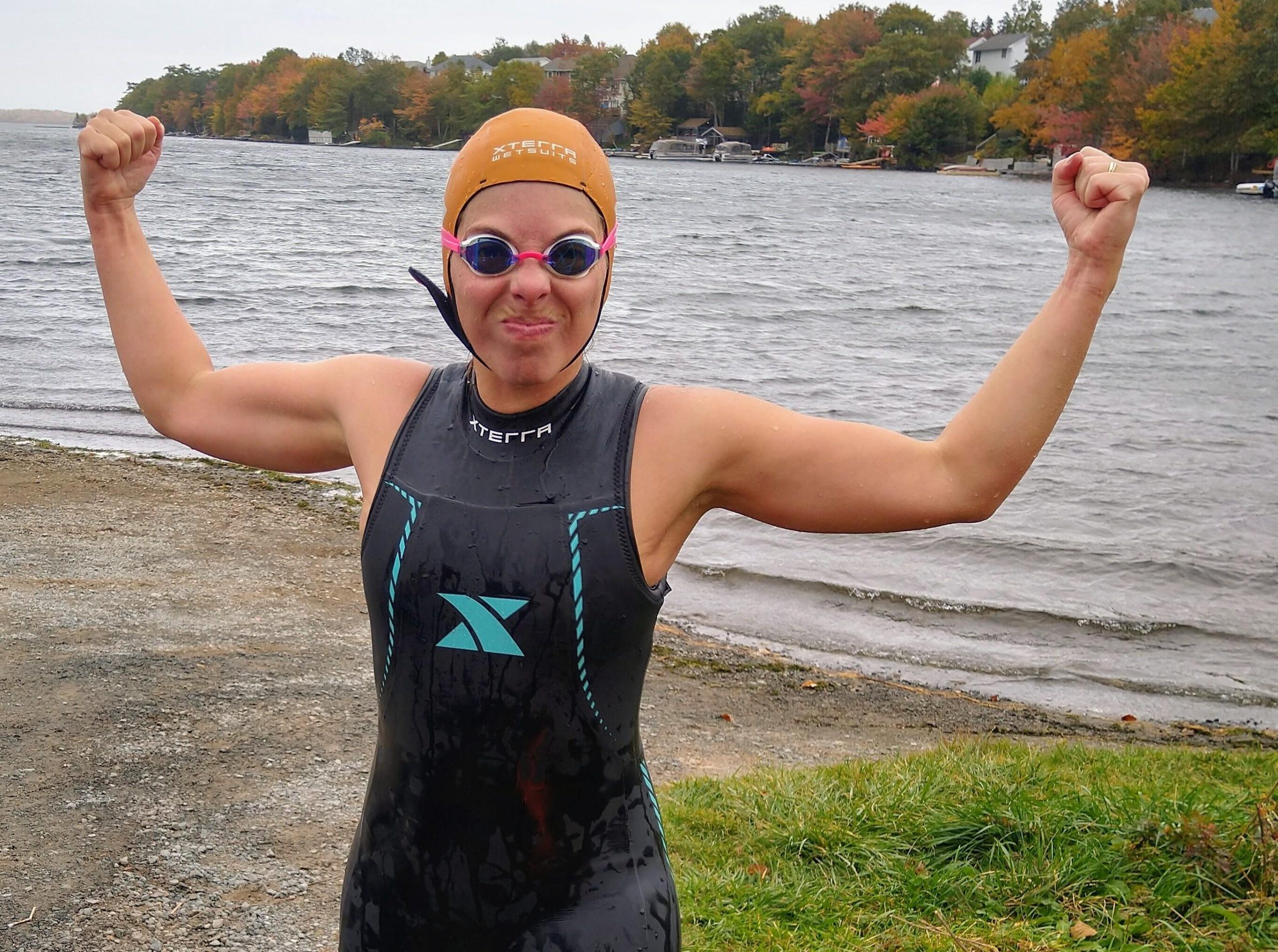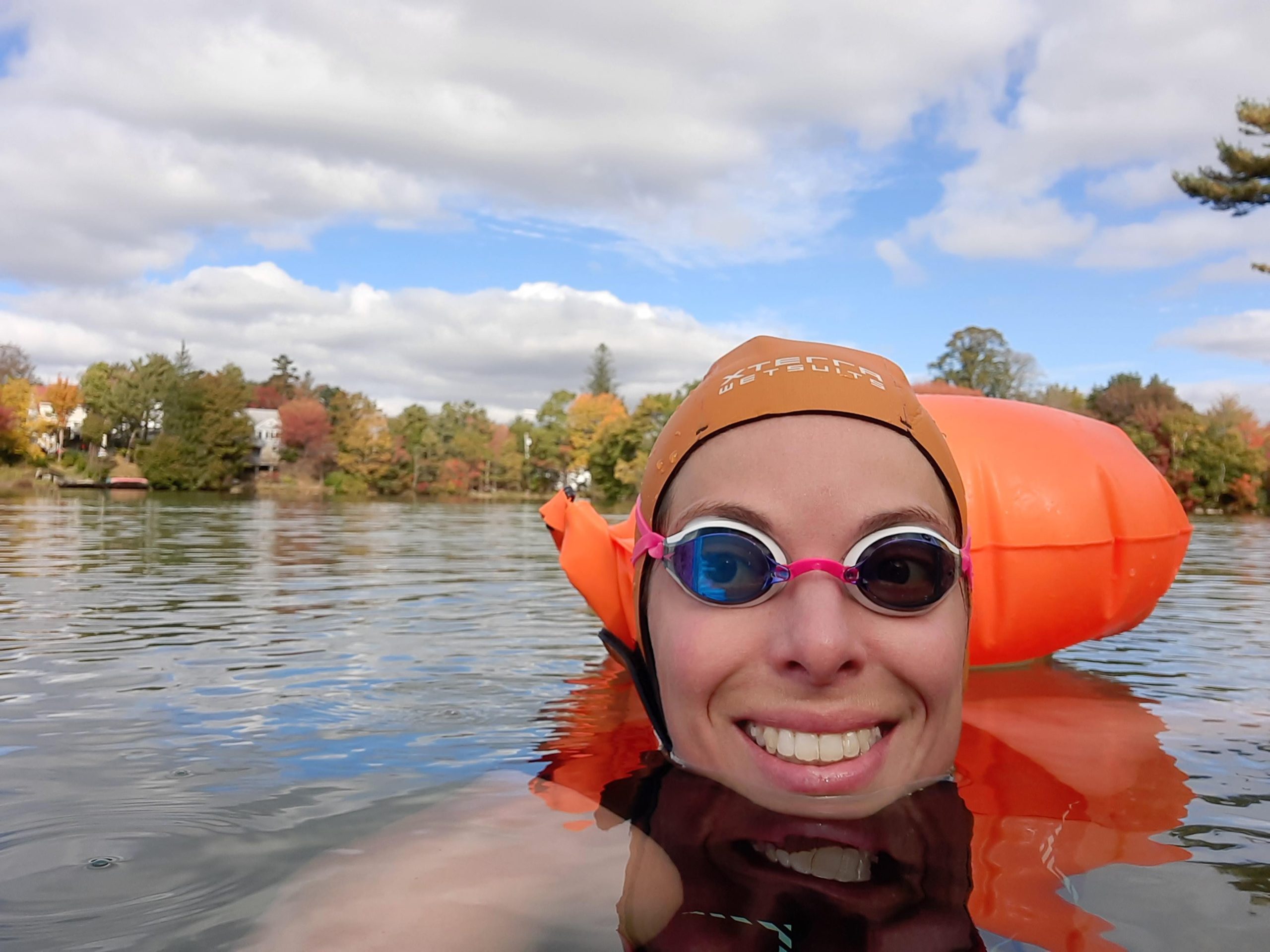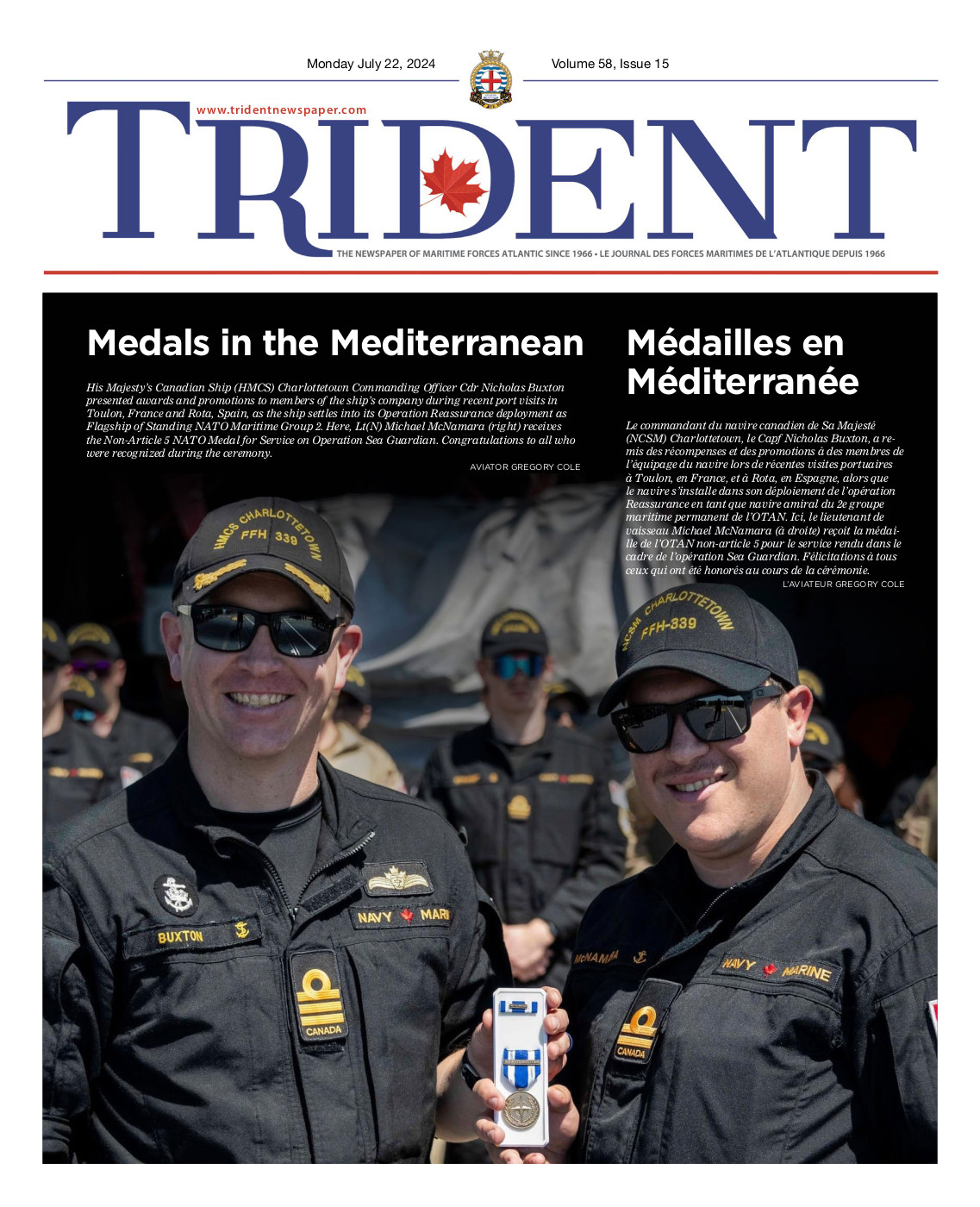
SUBMITTED
The big chill: Sailor credits cold-water swimming for help with injury recovery
By Joanie Veitch,
Trident Staff
Last June, S1 Marie-Neige Dupuis-Carbonneau, a clarinetist with the Stadacona Band, was hit by a pick-up truck while riding her bike home from work. Before that, she was captain of her unit’s Navy Bike Ride team, and would regularly ride 300 kilometres or more most weeks, but the accident changed everything.
Just minutes away from home in Dartmouth, S1 Dupuis-Carbonneau was cycling alongside Lake Banook on Prince Albert Road in June 2021 when the truck hit her. There was road work occuring in the area at the time and the driver of the truck was with one of the work crews.
“I was going straight and he made a left turn; he didn’t see me at all. I was clipped in… my bike got pulled under the bumper with me still on it. I grabbed onto the bumper so I wouldn’t get pulled under the wheels. I was yelling, but he couldn’t hear me,” she said.
A bus driver behind the truck called out to some people on the work crew and together they got the truck driver’s attention.
“He had no clue that I was there,” said S1 Dupuis-Carbonneau.

SUBMITTED
Shaken, bleeding and covered in “road rash” on her right side, S1 Dupuis-Carbonneau was taken by ambulance to hospital. While scans showed “no major damage”, she was in a lot of pain and spent four days in hospital. Among her many injuries, she had torn ligaments in her left leg and damaged cartilage in her chest. Later, it became clear that she also had a significant shoulder injury that may still require surgery to repair.
“I had to be immobilized for two weeks,” she said. “I felt so tired; I was sleeping 16 hours a day. It was hard, both mentally and physically.”
S1 Dupuis-Carbonneau grew up in Saint-Hubert, Quebec and joined the Canadian Armed Forces (CAF) in 2004 as a reservist in Montreal. She became a regular force member after successfully auditioning for the musical branch, taking her first posting with the Stadacona Band in 2016.
Living in Dartmouth with her husband, who works as a paramedic, and their two children, S1 Dupuis-Carbonneau was fit and active. She cycled to the band office at Windsor Park most days, often adding an extra 50 to 60 kms to her commute by riding to and from work via Cow Bay. A lifeguard in her youth, in the summer months she’d regularly swim up to 2.5 kms in Bell Lake, near her home. A runner too, she’d qualified for CAF nationals in both swimming and triathlon.
After her accident, S1 Dupuis-Carbonneau could barely move. Her mother came to help and stayed for five weeks. By the time her dad arrived in mid-July, she was able to walk a little, using crutches and wearing an articulated leg brace. Knowing her love of the water, he promised to take her to the beach.
“I couldn’t do much but it was enough just to be able to sit on the beach and be outside. That was the first time I had a sense that I was going to heal,” she said.
By the end of August, S1 Dupuis-Carbonneau had recovered enough to take the path down to Bell Lake — first still on crutches and later with a cane — where she would meet up with some members of the Navy Tridents Triathlon Club doing their training swims.
“I would tag along with them. I had a pool buoy between my legs and just used my upper body to pull me along…. but I could feel that I was beginning to build up my strength again,” she said.
Summer turned to fall and the lake got colder. Her triathlon swim buddies stopped their outdoor training swims but S1 Dupuis-Carbonneau carried on. Already swimming with an inflatable swim buoy for safety, as the temperatures dropped, she added extra gear — a wetsuit, a neoprene swim cap and surf gloves.
Back at work part-time, she’d often go to Chocolate Lake in Halifax on her lunch break, where she met up with other “cold-water swimmers”. Swimming wasn’t just making her feel stronger physically, the cold water was helping in other ways too.
“After the accident I felt anxious and I was grieving the loss of my fitness. I still feel that, but swimming in cold water has helped me so much. It’s painful when you first go in so you have to go slow, and you have to relax. It’s like mediation because it forces you to focus on your breathing while your body adapts to the water. All you can think about is regulating your breathing and being right there, in that moment,” she said.
As fall turned to winter, she would go to the ocean, not to swim, but to dip in for as long as she could for her ‘cold water fix.’
In April, S1 Dupuis-Carbonneau got back on her bike for the first time since the accident. After cycling with her family on the Salt Marsh Trail in Cole Harbour, she knew could also get back to occasionally cycling her former 12-km commute to work.
“It’s the same route I used to ride. It felt a bit weird the first time I went past the spot where the accident happened, a bit emotional… I used to feel invincible when I was on my bike. I had no fear. I don’t feel like that any more.”
Before the accident S1 Dupuis-Carbonneau had her sights set on doing a Half Ironman — a 113-km event consisting of a 1.9-km swim, a 90-km bike and 21.1-km run — by the time she turned 40.
“Now… I set small goals, short-term goals so I don’t get disappointed,” she said. “I would like to be able to run a slow 5-km by the end of the summer. I think I can do it, but I’ll have to take it gradually.”
In August, S1 Dupuis-Carbonneau and her family will be moving to Ottawa for her new posting with the Central Band.





